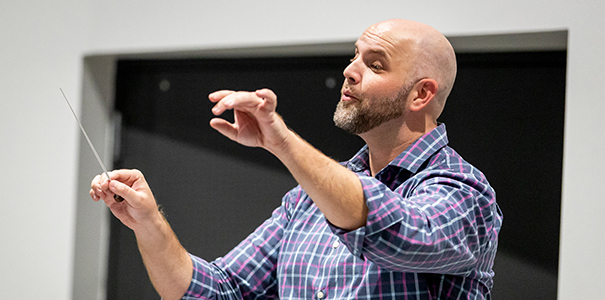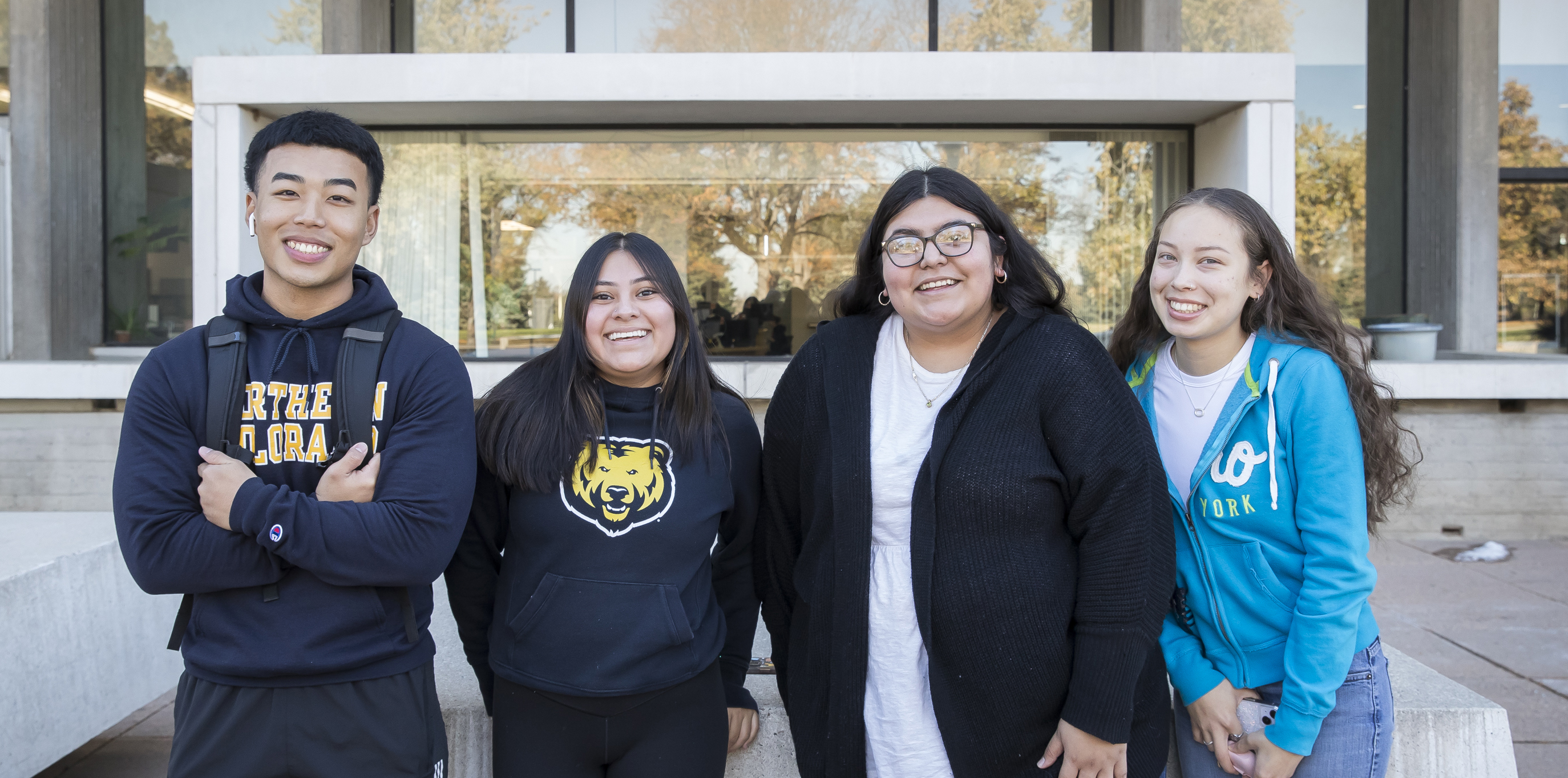
Since he was very young, Daniel Farr, DMA, has had a love for music. He found the University of Northern Colorado the best place to share that love while combining two of his passions; conducting bands and teaching.
Farr joined UNC’s College of Performing and Visual Arts last August as the new assistant professor of Music and associate director of Bands. He conducts UNC’s Symphonic Band and directs the university’s acclaimed “Pride of the Rockies” marching band. He also teaches conducting classes, something he developed a passion for after he started conducting marching bands in high school.
“Everything you do as a conductor is for a purpose,” Farr said. “The conductor helps the musicians at the moment to better interpret the piece. Every move and every gesture is something that the ensemble understands and then reacts to. It is a constantly living act. And for the audience's perspective, if I turn this way and give a big gesture to the trombones, that’s where they are going to be listening. So in a visual sense, even not knowing anything about the music, the conductor helps to conduct their listening as well.”
Before coming to UNC, Farr served as a band director in Florida public schools for 10 years. He obtained a bachelor's and master’s of Music Education from Florida State University and a DMA in Conducting from The Ohio State University. Ensembles under his direction have consistently earned superior ratings at Marching Music Performance Assessment, district and state Solo and Ensemble, as well as district and state Concert Music Performance Assessment.
“We are very proud to have Dr. Dan Farr as our associate director of Bands. His exemplary musicianship and dedication to music education and performance perfectly align with our values in the School of Music,” said Dr. Carissa Reddick, Director of UNC’s School of Music. “Dr. Farr cares about our students’ development as whole musicians, allowing them to easily make connections among their academic, studio and ensemble classes. We are excited to see how our students grow with Dr. Farr’s leadership in the years to come.”
"I am delighted and humbled to join the incredible School of Music faculty at UNC,” Farr said. “The student interactions I have had so far have been truly wonderful.”
Daniel Farr conducting a rehearsal with UNC's symphonic band.
Many people, especially if they are not familiar with music in the academic environment, might wonder what a music class looks like. Taking the example of the symphonic band that Farr conducts, it has around sixty students and they all meet at the rehearsal hall twice a week for two hours to practice.
“The rehearsal is the process where we all listen to each other and the students bring their technical skills and especially their personalities to the piece. That makes the music come to life, not only the execution of the technical facility, but the spirit we put into it as a collective ,” Farr said. “We start reviewing the general piece, to then get more specific in the parts that need more attention. Once all the particular pieces are put together, then we proceed to move to the piece as a whole again. The full rehearsal cycle consists of six rehearsals. I tell students to imagine it like a bow tie. We start big picture to get to know the piece. As we go through we get more specific, and as we get closer to the performance, we zoom back out.
“One of my huge passions as an educator is to get to see the students go from where they were, to where they are. There is so much joy in watching their progress. It’s amazing. It’s like a light bulb moment of pure beauty. That is the reason why I love to teach music. It feeds my soul,” Farr concluded.
— written by Carlos José Pérez Sámano
More Stories
-
Governor Polis Reappoints Two to UNC’s Board of Trustees
Este artículo no está en español.
-
State Farm Invests in Career Readiness Initiatives for UNC Students
Este artículo no está en español.
-
Commentary: The Importance of Investing in First-Generation Students
Este artículo no está en español.
-
Supporting First-Generation College Students to Become Next-Generation Leaders
Este artículo no está en español.




